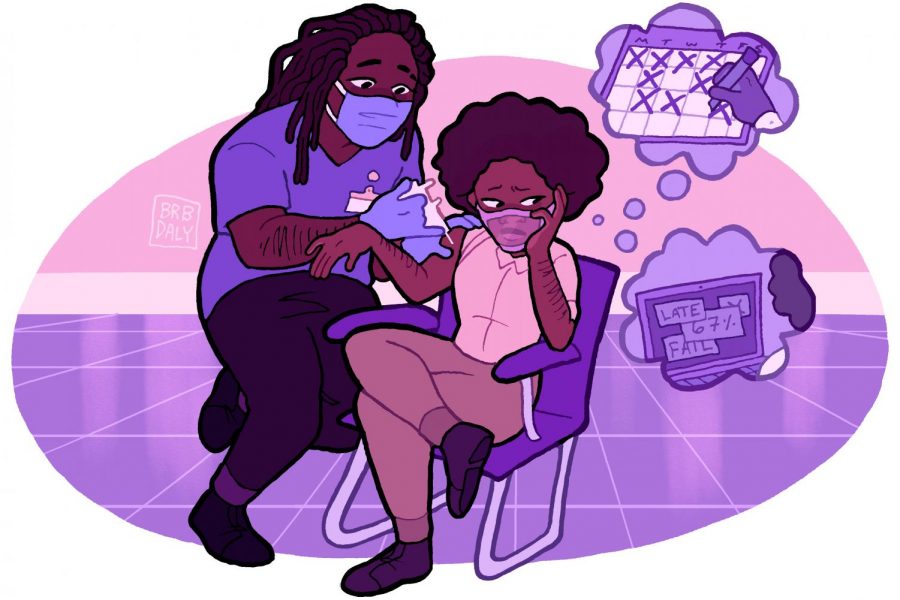UT-Austin Senate of College Councils encourages flexible attendance policies for students receiving the COVID-19 vaccine
March 26, 2021
The Senate of College Councils passed legislation by unanimous consent during their general assembly Thursday to urge the Office of the Executive Vice President and Provost to recommend that faculty adopt “flexible” attendance policies for students receiving the COVID-19 vaccine. The legislation includes all vaccines as they become available.
Due to academic freedom, the University administration cannot mandate faculty to implement a flexible attendance policy, but the provost office can advise faculty to do so, according to Senate President-Elect Steven Ding.
On Tuesday, University Health Services and UT Health Austin announced they will administer COVID-19 vaccines to people over the age of 16 starting March 29, after the Texas Department of State Health Services announced that all adults will become eligible to receive the vaccine in Texas.
Members of the UT community who are age 16 and older and have already completed the COVID-19 vaccination distribution form will receive an email to schedule an appointment to receive the COVID-19 vaccine next week, according to the UHS and UT Health Austin announcement.
Isabela Ponce, Senate representative for the Undergraduate Business Council, said she wrote the flexible attendance resolution after struggling with side effects from both doses of the Moderna vaccine.
“I was completely bedridden. I had fever, chills (and) nausea,” accounting sophomore Ponce said. “It became really, really difficult for me.”
Ponce said she was notified about her appointment the night before she had to go in, and the late notice made it difficult for her to have a discussion with her professors regarding attendance, participation and upcoming deadlines.
Ponce said her professors require students to turn their camera on for attendance or require participation as a large percentage of their grade. She said requiring attendance and participation can be difficult for students who experience side effects.
Ponce said she spoke to the Office of the Executive Vice President and Provost on Thursday about policy changes regarding attendance, and said the provost’s office will meet with the Faculty Council on Monday to discuss implementation.
Political communications sophomore Jose Puente said he traveled from Austin to Kingsville to receive his first dose of the vaccine during spring break, so he did not struggle with attendance and deadlines. However, he said he is concerned for when he goes back for his second shot.
The Senate resolution will be sent to UT President Jay Hartzell; Dan Jaffe, the interim executive vice president and provost; Soncia Reagins-Lilly, the vice president for student affairs and dean of students; Terrance Hines, the executive director of University Health Services; and Amy Young, chief clinical officer at UT Health Austin, for implementation.
Ding, a management information systems and urban studies junior, said he volunteers at UT’s vaccination hub at Gregory Gym. He said the average wait time is two hours, which he said could impact students in classes.
“(The COVID-19 vaccine) is important if we want to get back to a normal or somewhat normal fall semester,” Ding said. “We really want to try to reduce barriers as students go to get the vaccine and work with admin and … faculty to ensure that flexibility is given to students.”
Ding said the Senate will support students by having a class concern form available, which they implemented during Winter Storm Uri when some professors were not being accommodating. Ding said since most of the representatives of each college have good relationships with the dean of their colleges, they can work to advocate for students.
Editor’s Note: This article first appeared in the March 26 issue of The Daily Texan.



